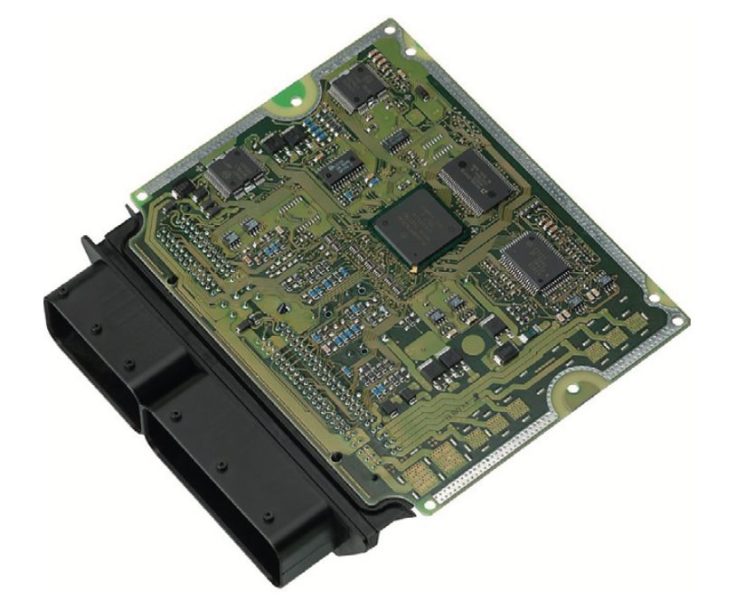Electronic Diesel Control (EDC) is a control system that manages the fuel injection process in diesel engines. EDC is responsible for regulating the fuel injection timing, quantity and pressure, thereby optimizing engine performance while reducing emissions. The EDC unit is one of the most critical components of a diesel engine, as it plays a vital role in ensuring the engine operates efficiently, smoothly and safely.
How Electronic Diesel Control (EDC) Works
The EDC unit is a sophisticated electronic control system that comprises a range of sensors and actuators to monitor and regulate various aspects of the diesel engine. The system typically consists of the following components:
- Engine Control Module (ECM): This is the main control unit of the EDC system. It receives input signals from various sensors located throughout the engine, such as the coolant temperature sensor, air flow meter, and exhaust gas sensor.
- Fuel Injector: The EDC unit controls the fuel injectors by providing them with signals to inject the right amount of fuel at the right time.
- Fuel Pump: The fuel pump supplies pressurized fuel to the fuel injectors. The EDC system controls the fuel pump to maintain the appropriate fuel pressure.
- Sensors: Various sensors located throughout the engine feed information to the EDC unit. These include temperature sensors, pressure sensors, and speed sensors.
- Actuators: Actuators are devices that translate the electronic signals from the EDC unit into mechanical actions. For example, the fuel injectors and fuel pump are actuators that respond to signals from the EDC unit.
The EDC unit continuously monitors the engine performance through the input received from various sensors. It uses this information to calculate the optimal fuel injection timing, quantity, and pressure for the engine. The EDC system adjusts the fuel injection process accordingly to achieve the desired engine performance and fuel efficiency.
Advantages of Electronic Diesel Control (EDC)
- Improved Engine Performance: The EDC unit improves engine performance by optimizing the fuel injection process. This results in better fuel efficiency, reduced emissions, and increased power output.
- Reduced Emissions: The EDC system reduces emissions by regulating the fuel injection process to ensure that the engine operates at its optimal efficiency.
- Increased Fuel Efficiency: The EDC unit ensures that the engine is operating at its optimal efficiency, which helps to improve fuel efficiency.
- Better Diagnostic Capabilities: The EDC unit has built-in diagnostic capabilities, which enables technicians to quickly and accurately diagnose and repair problems with the engine.
- Increased Safety: The EDC unit ensures that the engine operates within safe parameters, thereby reducing the risk of accidents and engine damage.
Conclusion
The Electronic Diesel Control (EDC) unit is a vital component of modern diesel engines. It helps to improve engine performance, reduce emissions, increase fuel efficiency, and enhance diagnostic capabilities. By regulating the fuel injection process, the EDC unit ensures that the engine operates at its optimal efficiency, while also providing a safer and more reliable driving experience.

The EDC system uses advanced electronic control algorithms to regulate the fuel injection process, which is critical to the performance of a diesel engine. The fuel injection process involves injecting the right amount of fuel at the right time, in the right location and at the right pressure to achieve optimal engine performance.
The EDC unit uses data from various sensors to calculate the optimal fuel injection parameters, such as engine speed, load, and temperature, and adjusts the fuel injection process accordingly. The system also continuously monitors the engine performance and adjusts the fuel injection process in real-time to ensure the engine operates at its optimal efficiency.
The EDC unit has revolutionized the diesel engine industry, providing significant improvements in performance, fuel efficiency, and emissions reduction. By optimizing the fuel injection process, the EDC unit has also enabled diesel engines to meet increasingly stringent emissions regulations.
In addition to regulating the fuel injection process, the EDC system also has built-in diagnostic capabilities. This allows technicians to quickly and accurately diagnose and repair problems with the engine, saving time and money.
Overall, the EDC unit is a critical component of modern diesel engines, providing improved performance, fuel efficiency, and emissions reduction while also enhancing safety and reliability. With ongoing advances in technology, the EDC unit will continue to play a vital role in the development of more efficient and environmentally friendly diesel engines.
Certainly! Here are some advantages and disadvantages of Electronic Diesel Control (EDC) units:
Advantages:
- Improved Engine Performance: The EDC unit optimizes the fuel injection process, resulting in improved engine performance, increased power output, and better fuel efficiency.
- Reduced Emissions: The EDC system helps to reduce harmful emissions by ensuring that the engine operates at its optimal efficiency.
- Increased Fuel Efficiency: The EDC unit regulates the fuel injection process, helping to maximize fuel efficiency and reduce operating costs.
- Enhanced Diagnostic Capabilities: The EDC system has built-in diagnostic capabilities, making it easier for technicians to diagnose and repair problems with the engine.
- Increased Safety: The EDC unit ensures that the engine operates within safe parameters, reducing the risk of engine damage and accidents.
Disadvantages:
- Cost: EDC systems are complex and expensive, which can make them cost-prohibitive for some applications.
- Maintenance: EDC systems require specialized training and equipment to maintain, which can be costly and time-consuming.
- Reliability: While EDC systems are generally reliable, they can fail or malfunction, leading to costly repairs or downtime.
- Compatibility: EDC systems are designed to work with specific engines and may not be compatible with all diesel engines.
- Complexity: EDC systems are complex and require a high level of expertise to design, install, and maintain.
Overall, while the Electronic Diesel Control (EDC) unit offers numerous advantages in terms of performance, efficiency, and emissions reduction, it also has some drawbacks in terms of cost, maintenance, and complexity. As with any advanced technology, it is important to carefully consider the pros and cons before deciding whether an EDC system is right for your specific application.




